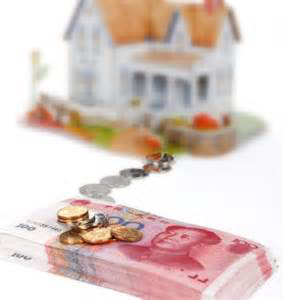
|
Chinese GDP growth slowed to 7.7% last year, hitting its lowest level since 1999. Some of the biggest issues we're seeing in the headlines these days are concerns over shadow banking, rising local government debt, and trust defaults. The credit crunch China experienced last year, and the worry that deleveraging could trigger a hard landing is also getting a lot of attention. We asked six China experts the same question. What worries you the most about China? Here are their responses: Alaistair Chan, Moody's: "The central bank’s campaign to cut risky lending practices and over-leverage in the financial sector via monetary tightening is a big concern. The PBoC seems to have learned from the June 2013 Shibor scare, but it is still unclear how monetary tightening against a backdrop of potential defaults in corporate bonds this year will unfold." David Cui, Bank of America: "Debt growth and corporate sector solvency issue." Patrick Chovanec, Silvercrest Asset Management: "I'm worried that Chinese leaders actually believe it when they say everything is under control. The clock is fast running out on China's tactic of using runaway credit to fuel investment-led growth. "At best China faces a growth squeeze from a mounting burden of bad debt, at worse that bad debt will blow up in its face. Either way, China faces a wrenching economic adjustment. If China's leaders recognize not just the direction but also the urgency of change, they have some hope of getting to the other side. If they kid themselves into complacency, they are courting disaster." George Magnus, Formerly UBS: "Among many things that worry me, the most urgent issue is if, how and under what circumstances China will tame credit creation and put a troublesome genie back in the bottle. We've had a few trust loan defaults that haven't caused a big stir yet, but there have been a couple of depositor bail outs that don't point to a determined attempt to curb the excess yet. "There's a tension between the PBoC and the China Banking regulatory Commission over shadow banking restraint. I expect credit to slow and to lead to slower growth. I worry that the authorities will try to soft pedal this, leading to a bigger denouement later." Jim Rogers, Rogers Holdings: "The high levels of debt in some areas. Some of the provinces and companies have built up debt in recent years during the recovery, since there has been so very much artificial liquidity all over the world. All the money printing in the developed world is causing distortions everywhere including China." Tom Orlik, Bloomberg: "The biggest worry about China this year is the state of the financial system. Massive credit growth has left banks overexposed, and as the economy slows the cracks are starting to show." Bill Bishop, Sinocism: "A. Environmental crises: air, water, soil, food. There are and will continue to be huge opportunities for investors and companies in cleaning up the mess, but the human toll is massive and will get worse before it gets better. It could lead to significant unrest but more likely will lead to cancer epidemics and emigration by those who can afford to; B. Corruption. Xi's crackdown on official corruption is serious and having an effect. Of course there are political reasons and scores to settle, but the crackdown has changed behavior. It has not however addressed the corruption that is pervasive in Chinese society, and it is hard though to see how that can be changed materially in the midst of increasing restriction on public discourse and transparency; C. Ideological retrenchment. No, Xi is not a "neo-Maoist", but he is a pragmatic Marxist and there is a broader tightening of discourse and more aggressive rejection of "Western" values and Neo-liberalism than we have seen in a while. But most people here do not believe in Marxism and a Marxist morality campaign will not work. So the real glue is nationalism, and that has only grown stronger, intentionally, over the years; D. Growing anti-foreign, and especially anti-American, sentiment as more and more people are told, and start to believe, that the West is trying to keep China down and prevent its rejuvenation. Tensions from an economic slowdown, economic reform/restructuring and/or the corruption crackdown and its political re-ordering could lead to even more external friction than would normally be expected with a rising power. Geoff Dyer's new book "The Contest of the Century: The New Era of Competition with China" is worth reading." |
去年中國的GDP增長下降到7.7%,是1999年以來最低的水平。 近來我們在新聞標題中看到的最大問題包括對影子銀行、不斷上升的地方政府債務以及信托基金違約的擔憂。 同時,中國去年經歷的信貸緊縮以及擔心去杠桿化會引發經濟硬著陸越來越引起人們的大量關注。 我們向六位中國問題專家提出了同一個問題:最擔心中國什么?以下是他們的答復。 穆迪公司阿來斯蒂爾·錢(Alaistair Chan):“中央銀行通過貨幣緊縮降低金融行業風險信貸以及過度杠桿化的行動非常令人擔憂。中國人民銀行似乎已經汲取了2013年上海銀行間同業拆放利率恐慌的教訓,但尚不清楚在公司債券方面針對潛在違約的貨幣緊縮政策將如何展開。” 美洲銀行的戴維·崔(David Cui):“債務增長以及企業部門的償付能力問題。” Silvercrest資產管理公司帕特里克·喬維尼克(Patrick Chovanec)。“我擔心中國領導人在說一切都在掌控下時,他們實際上真的相信這一點。中國利用失控的信貸維持投資引導型經濟增長,這種策略正在迅速走向末日。” “最好的情況是,中國面臨增長因沉重債務負擔引起的經濟增長緊縮,更遭的情況則是,壞債將讓中國直接栽跟頭。無論是哪種方式,中國將面臨痛苦的經濟調整。如果中國領導人不但明白改革的方向,而且認識到改革的緊迫性,他們還有可能度過難關。如果幼稚地陷入沾沾自喜,將招致災難。 UBS的喬治·馬格努斯(George Magnus):“在令我擔心的許多事情當中,最為緊迫的是中國是否會并在什么樣的條件下馴服信貸創造,將制造麻煩的妖魔重新放回瓶子里。我們已經看到了一些信托貸款違約事件,但沒有造成很大轟動,不過,已經有了兩三件存款人救助的案例,但這些案例并還未顯示出消除過分信貸的堅定努力。” “在約束影子銀行問題上,中國人民銀行和中國銀行業監督管理委員會關系緊張。我預計信貸會放緩,導致經濟增長放緩。我擔心政府試圖減緩這一措施,導致后來形成更嚴重的結果。” 羅杰斯控股(Rogers Holdings)吉米·羅杰斯:“有些地區存在的高債務問題。在最近幾年的經濟恢復期間,因為整個世界范圍內存在非常高的人為流動性,一些省市和公司債務水平大幅提高。發達國家印發的所有貨幣在包括中國在內所有國家里制造了扭曲。” 彭博社湯姆·奧立克(Tom Orlik):“有關中國今年最大的擔心是金融體系的狀況。巨大規模的信貸增長將銀行過度地暴露在風險之下,隨著經濟放緩,裂痕已經開始顯現。” Sinocism的利明璋:“第一,環境危機:空氣、水、土壤。對投資人和企業來說,清理這些污染存在,而且將繼續存在巨大的機會,但是污染將造成巨大的人身傷亡,在徹底得到扭轉之前,這種情況會變得更糟。環境危機可能引起大的動亂,但更大的可能是造成多種癌癥蔓延,以及具有經濟能力人士的移民。” 第二,腐敗問題。習近平打擊官員腐敗的行動是嚴肅而有成效的。當然,打擊腐敗存在多種政治理由,也能得到政治得分,但是打擊活動已經改變了行為。不過,并沒有解決在中國社會普遍存在的腐敗問題。在對公共話題以及透明性限制不斷增加的環境下,很難看到實質性的變化。 第三,思想緊縮。習絕對不是“新派毛分子”,但他是位實用的馬克思主義者。最近以來出現大范圍的緊縮政治話語,以及對“西方”價值和新自由主義激勵的排斥,超過了我們以前的觀察。但是,這里的絕大多數人并不相信馬克思主義,馬克思主義道德運動將不起作用。因此,真正的粘合劑是民族主義,近年來,民族主義被人為得到增強。 第四,隨著越來越多地人被告知并且相信,西方正在試圖打壓中國,阻止中國復興,反外情緒,尤其是反美情緒得到不斷增強。經濟增長放緩、經濟改革/重組、反腐和政治秩序重構引起的緊張關系將導致更多的外部摩擦,超過了一般情況下新興大國的預期。杰夫·戴爾的新書《世紀競賽:與中國競爭的新時代》值得一讀。 (譯者 Ringohan 編輯 丹妮) |
